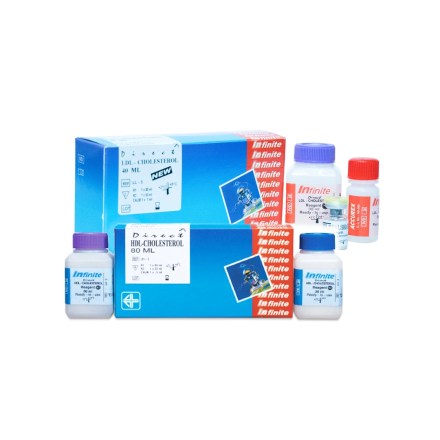- Your cart is empty
- Continue Shopping
Monitoring Your Cholesterol: The Importance of Regular LDL and HDL Checks.

Understanding Cholesterol
Cholesterol is a waxy substance your body needs to function properly. However, just like anything else, too much of a good thing can be bad. In this case, high levels of LDL cholesterol, the “bad” cholesterol, can build up in your arteries, increasing your risk of heart disease.

LDL Cholesterol: The “Bad” Cholesterol
LDL cholesterol is often labeled the “bad” cholesterol because high levels can lead to plaque buildup in your arteries. This plaque can narrow arteries, making it difficult for blood to flow and increasing the risk of heart attacks and strokes. LDL carries cholesterol from your liver to the rest of your body, and too much LDL can be detrimental.
Key Points:
- Function: Transports cholesterol from the liver to cells throughout the body.
- Risks: High levels can cause artery blockage, leading to cardiovascular diseases.
- Target Levels: Generally, less than 100 mg/dL is considered optimal
HDL Cholesterol: The “Good” Cholesterol
On the flip side, HDL cholesterol is known as the “good” cholesterol. HDL helps remove cholesterol from your bloodstream by transporting it back to your liver, where it’s processed and eliminated from the body. Higher levels of HDL are associated with a lower risk of heart disease.
Key Points:
- Function: Collects excess cholesterol and returns it to the liver for removal.
- Benefits: Helps prevent cholesterol buildup in the arteries.
- Target Levels: 60 mg/dL or higher is considered protective against heart disease.
Why Regular Monitoring of LDL and HDL is Crucial
Routine monitoring of LDL and HDL levels can provide an early warning system for potential cardiovascular problems. Elevated LDL or low HDL levels can signal a higher risk of developing heart disease. Detecting these issues early allows for interventions such as dietary changes, increased physical activity, or medication to manage cholesterol levels effectively and reduce the risk of serious health complications.
- Proactive Management: Enables early intervention to prevent the progression of cardiovascular diseases.
- Better Outcomes: Improves the effectiveness of treatments and lifestyle changes
Making Cholesterol Monitoring Accessible through LDL-40 HDL-80 Infinite

Accurex’s LDL-40 HDL-80 Infinite aims to make cholesterol monitoring accessible to everyone. Its design and functionality cater to both professional and personal use, breaking down barriers to regular cholesterol testing and enabling proactive health management.
Key Features and Benefits
1. High Accuracy and Precision
The LDL-40 HDL-80 Infinite offers state-of-the-art technology to deliver highly accurate and consistent results. This accuracy ensures that healthcare professionals can rely on the data for making critical decisions regarding patient care and treatment.
2. User-Friendly Interface
Designed with simplicity in mind, the LDL-40 HDL-80 Infinite features an intuitive interface that makes it easy for users to operate. Whether you are a healthcare professional or an individual conducting at-home testing, the device provides straightforward instructions and displays results.
3. Rapid Results
In the fast-paced environment of modern healthcare, time is of the essence. The LDL-40 HDL-80 Infinite delivers quick results, allowing for immediate analysis and decision-making. This rapid turnaround can be particularly beneficial in clinical settings where timely interventions are crucial.
4. Comprehensive Testing
The device offers comprehensive cholesterol testing by accurately measuring both LDL and HDL levels. This dual analysis provides a complete picture of an individual’s cholesterol profile, essential for effective management and treatment planning.
Conclusion

Regular monitoring of LDL and HDL cholesterol levels is vital for maintaining heart health and preventing cardiovascular diseases. By keeping track of these key cholesterol indicators, you can detect potential health issues early, evaluate the effectiveness of lifestyle and medication interventions, and make informed, personalized healthcare decisions.



